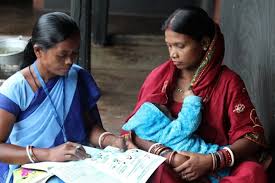
Certificate in Community Health(2 Years)
Certificate in Community Health —Syllabus (2 Years)
Year 1
1. Foundations of Community Health
- Concepts, definitions, scope, and importance of community health
- Determinants of health: social, economic, environmental
- Health equity, social justice, and health disparities
- Historical development of public health & primary health care
2. Human Biology & Basic Life Sciences for Health Workers
- Anatomy and physiology: major body systems (digestive, circulatory, respiratory, excretory, nervous)
- Cell biology, tissues, organs
- Homeostasis and basic metabolic processes
- Introduction to microbiology and human pathogens
3. Hygiene, Sanitation & Environmental Health
- Water supply, safe drinking water
- Waste management (solid, liquid, biomedical)
- Sanitation practices, toilet facilities
- Vector control, pest control
- Air, noise, soil pollution and health impacts
4. Nutrition, Food Safety & Community Nutrition
- Macronutrients, micronutrients, balanced diet
- Malnutrition: undernutrition, overnutrition, micronutrient deficiencies
- Nutritional assessment methods (BMI, anthropometry etc.)
- Food safety, food hygiene, foodborne diseases
- Nutrition across life‑stages: children, adults, pregnancy, elderly
5. Maternal & Child Health and Reproductive Health
- Antenatal care (ANC), safe delivery, postnatal care
- Newborn care, immunization schedule, growth monitoring
- Breastfeeding, complementary feeding
- Family planning methods and counseling
- Reproductive health: menstrual health, sexually transmitted infections
6. Disease Prevention, Control & First Aid
- Classification of diseases: communicable, non‑communicable, emerging
- Common infections: prevention, control, vaccination
- Non‑communicable diseases: lifestyle risk factors, prevention
- Basic first aid: bleeding, burns, fractures, choking, CPR
- Emergency preparedness in community settings
7. Health Education & Communication
- Principles and strategies of health education
- Behavior change models and theories (e.g. KAP, Health Belief Model)
- Designing health promotion materials (posters, leaflets, audio‑visual)
- Community mobilization, peer education, participatory methods
- Use of media and social media in public health messaging
8. Field Work / Practical Training – Year 1
- Home visits: hygienic survey, health status assessment
- Community mapping and baseline survey
- Nutrition screening camps, immunization drives
- Health education sessions in community / schools
- Recording and reporting of field observations
- Supervised internship in local health centre
Year 2
1. Epidemiology, Biostatistics & Research Methods
- Basic epidemiology: incidence, prevalence, risk factors
- Types of studies: descriptive, analytical, experimental
- Measures: relative risk, odds ratio, rates
- Introduction to biostatistics: mean, median, mode, variance, standard deviation
- Data collection tools: questionnaires, interviews, observation
- Sampling methods, data analysis, interpretation
- Research ethics and consent, protocol writing
2. Health Systems, Health Policy & Planning
- Structure of health systems: local, district, state, national
- Primary, secondary, tertiary care: roles and linkages
- Health financing, health insurance, resource allocation
- Health policy formulation, implementation and evaluation
- Health program planning and budgeting
- Monitoring and evaluation frameworks, indicators
3. Public Health Issues & Programmes
- National health programmes (e.g. TB, malaria, HIV, NCDs, maternal health)
- Disease surveillance systems and outbreak investigation
- Environmental health challenges (urban, slum, disaster)
- Mental health, substance abuse, adolescent health
- Health of vulnerable groups: elderly, disabled, migrants, tribal populations
4. Leadership, Management & Administration in Community Health
- Health project management: planning, implementation, supervision
- Human resource management in health settings
- Logistics, supply chain, inventory management
- Quality assurance, standards, accreditation in community health
- Legal, ethical issues in community health practice
5. Health Promotion, Behavior Change & Community Mobilization
- Advanced strategies for behavior change
- Community participation, stakeholder engagement
- Advocacy, health policy communication
- Designing and implementing health campaigns
- Monitoring impact of health promotion interventions
6. Disaster Management, Emergency Health & Global Health
- Concepts of disaster, risk reduction, preparedness
- Role of health workers in disasters and emergencies
- International health: global health concerns, pandemics
- One Health approach, zoonotic diseases
- Climate change and health
7. Capstone Project / Major Field Project
- Identify a community health problem
- Conduct baseline survey, intervention plan
- Implement intervention, monitoring, evaluation
- Report writing, presentation, dissemination
8. Advanced Field Internship & Practicum — Year 2
- Longer posting in primary health centres / community health projects
- Exposure to health programme implementation
- Data collection and analysis in real setting
- Health education campaigns, stakeholder coordination
- Final report, presentation, viva / defense

